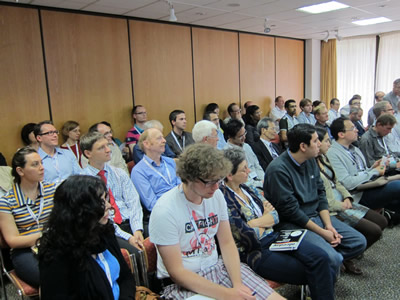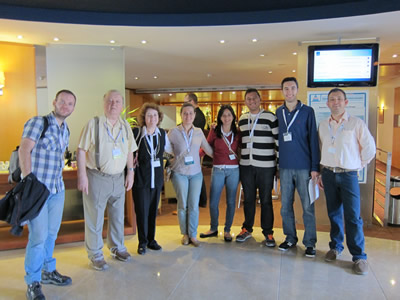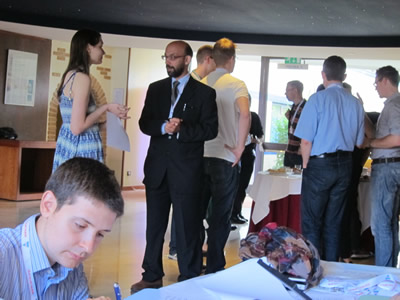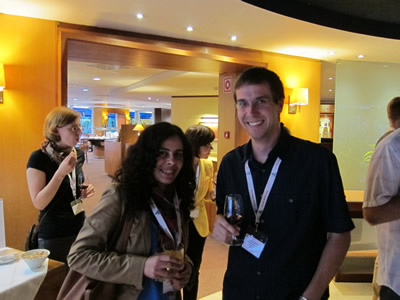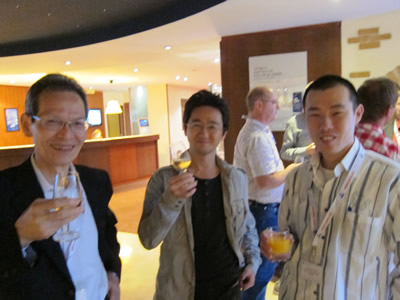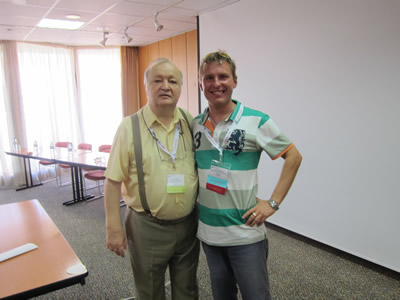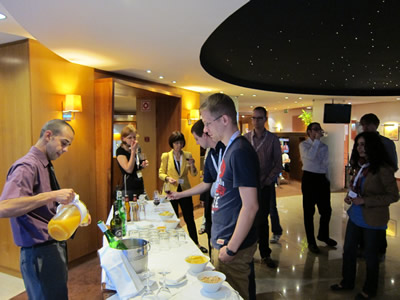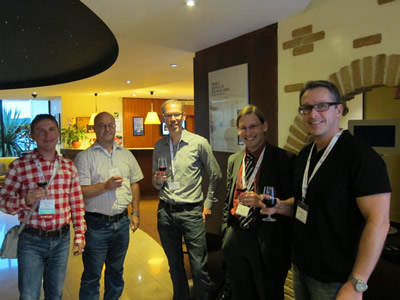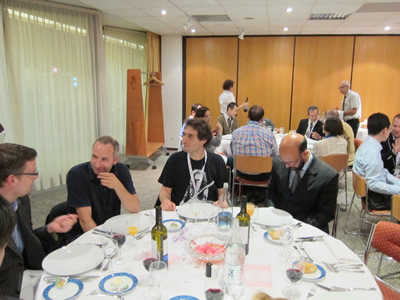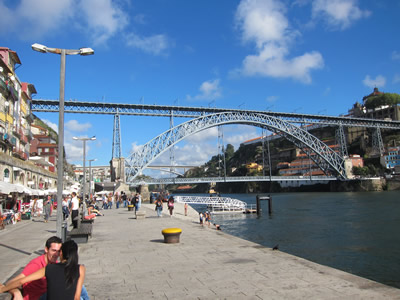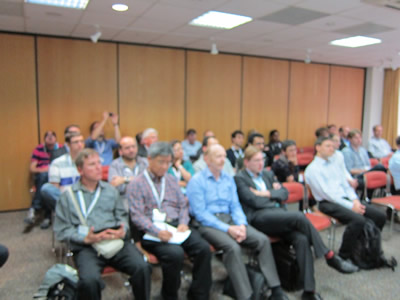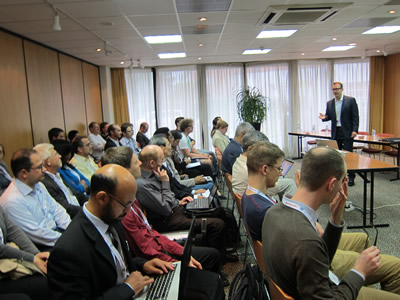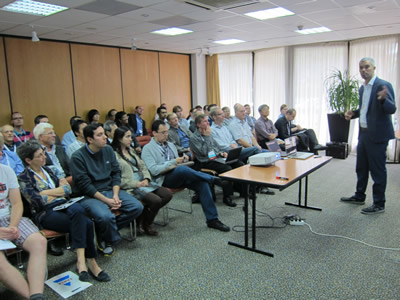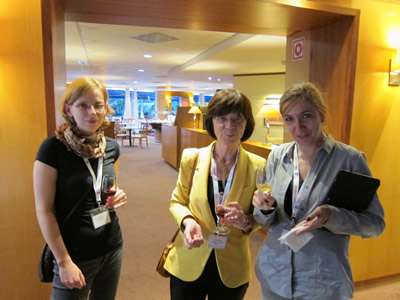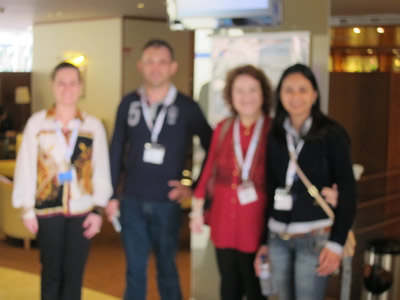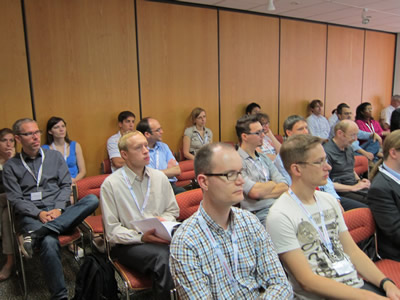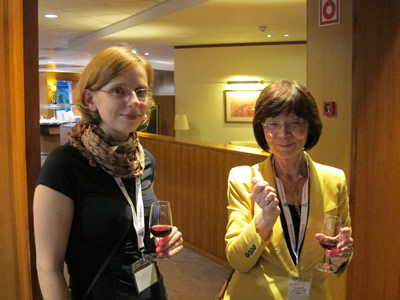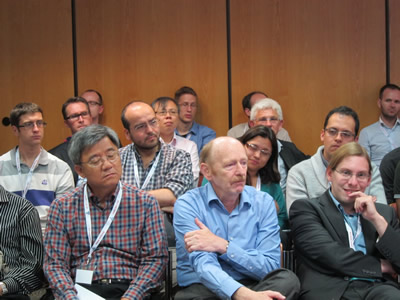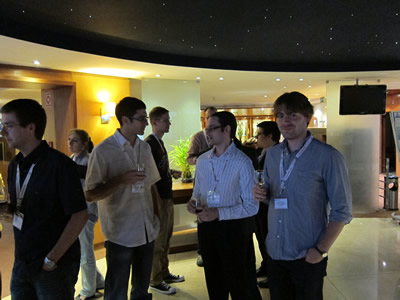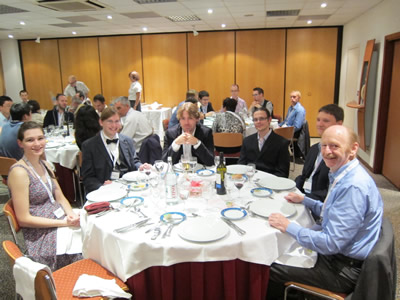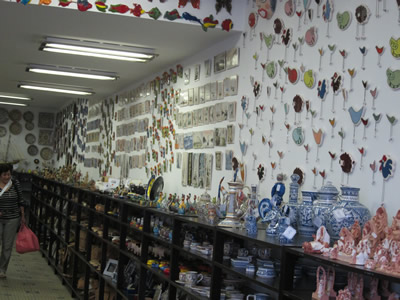CORETA 2023 - Advances on Core Technologies and Applications
September 25, 2023 - September 29, 2023
CORETA 2023: Call for Papers
Due to multiple requests, the submission deadline has been moved.
Onsite and Online Options: In order to accommodate a large number of situations, we are offering the option for either physical presence or virtual participation (pdf slides or pre-recorded videos).
A plethora of intertwined technologies and applications raised during the last years because of maturity of core approaches related to Artificial Intelligence (AI), Machine Learning (ML), Deep Learning (DL), and Cognitive Computing (CC) domains. In parallel, new technologies like 5G, tactile Internet, spatial and terrestrial communications augmented the speed and computing possibilities of networking systems.
Citizen-centric services as well as innovations in transportation, healthcare, industry, and economy, in general become provocative challenges due to complexity, diversity and the increasing needs of our society. In the virtual eco-systems, where robots are part of society as well, robots-driven industry, robots-citizen care, behavior analytics, affective computing, and empathy set the search for practical applications of deep-learning and knowledge discovery.
While progress is visible, sensitive aspects related to privacy, digital forgery, assisted-living, and semantic processing of the enormous information collected for IoT and wearable devices are still partially solved. Apart intrinsic citizen-focused issues, new self-driven systems and parts (drones, vehicular systems), sustainable and green energy, protection of critical systems, and smart cities challenges ask for innovative correlation and real-time solutions based on core-technologies and applications mentioned above.
CORETA 2023 continues a series of international events covering challenges to make use and correlate results in different scientific and technological achievements. Potential solutions for reliability, resilience, prediction, sustainability, etc. are still fledgling hopes.
We solicit both academic, research, and industrial contributions. We welcome technical papers presenting research and practical results, position papers addressing the pros and cons of specific proposals, such as those being discussed in the standard fora or in industry consortia, survey papers addressing the key problems and solutions on any of the above topics short papers on work in progress, and panel proposals.
Industrial presentations are not subject to the format and content constraints of regular submissions. We expect short and long presentations that express industrial position and status.
Tutorials on specific related topics and panels on challenging areas are encouraged.
The topics suggested by the conference can be discussed in term of concepts, state of the art, research, standards, implementations, running experiments, applications, and industrial case studies. Authors are invited to submit complete unpublished papers, which are not under review in any other conference or journal in the following, but not limited to, topic areas.
All topics and submission formats are open to both research and industry contributions.
CORETA 2023 conference tracks:
Fundamental concepts and methodologies
Cognition (CC, AI, ML, DL) - general concepts and approaches
AI concepts, methodology and algorithms (agents, environments, expert systems, neural networks, deep thinking, trusted, responsible and interpretable AI
Big Data (data mining, knowledge representation, pattern recognition, searching algorithms, fuzzy logic, natural language processing
ML concepts, methodologies, models, and algorithms (learning, estimation, decisions, methods, perceptrons, models)
DL approaches (supervised and unsupervised, reinforcement, multi-learners)
Access control, security, and privacy in (CC, AI, ML)-based systems
Management, scalability, flexibility, and sustainability aspects of (CC, AI, ML)-based systems
Integration and interoperability of multi-paradigm systems
Impact of AI on society and humans: services, advantages, and risks
Core-support technologies
IoT (macro and nano sensors, web of objects, energy harvesting, IoT real-time control, mobile-IoT)
5G (6G, 5G, 4G, LTE, LTE-Advanced, mmWave, QoS, security, deployment)
Mobility (vehicular, drones, robots, wearable devices/appliances, mobile-cloud, wearable computing, mobile distributed reasoning)
Networking (Future Internet, WLAN, WPAN, WBAN, Wi-MAX, CN, CDN, ICN, Delay-tolerant networks, SDN, NFV, Slicing, Cognitive networks, Cognitive Radio)
Monitoring and control (adaptive monitoring, cognitive management, self-control, incident-handling)
Cloud networks (Cloud-computing, edge-computing, fog-computing)
VR (Virtual), AR (Augmented), XR (Extended), MR (Mixed) and IVR (Immersive) Reality
Cognition-based technologies
Industrial IoT and cognitive robots
Drones monitoring and controlling
Deep-learning, biomimicry, and organ-on-chip
Driverless vehicles with route discovery and path recognition
Mobility and IoT for Smart Cities services
Smart energy management using big environmental data and IoT
IoT-based agricultural and autonomous systems for field and livestock operations
Hybrid-technologies for advanced services and applications
Convergence of satellite-aerial-terrestrial networks by extending 5G
Ultra-low latency in Tactile Internet and 5G Technologies services
Blockchain-based applications in Cloud environments
Machine Learning (ML)-centric Big Data processing in Cloud-based systems
Web, Mobility, and Internet of Things (IoT) apps
Smart mobile Web in 5G systems
Behavior analytics and social data transmission at 5G-speed communities
ML for real-time security profiling (against smishing, phishing, etc.)
AI-based systems
AI-driven transportation systems
AI-predicting emergency events in 5G and 6G systems
AI-based neuroimaging for immersive virtual environments
AI cognitive engines for self-driving networks
AI cognitive management in systems with slicing, virtualization, SDN/NFV, virtual RAN, and Cloud-RAN
AI-based cyber-systems resiliency
AI-human-centered cybersecurity
AI-based policies for designing, deploying, and maintaining complex systems
Advanced healthcare services
Personalized health devices and mobile services
Assisted-living applications using affective computing
Predictive alarms in healthcare systems using IoT and cognitive computing
Smart wearable devices for mobile healthcare
Personalized cognitive surgeon-robots
Empathy and trust on robot companions
Patient profiling using ML and records (Big data)
Discovery of drugs and healing procedures based on Big Data and ML
Virtual Worlds
Real and virtual environments, augmented reality usability, mobile virtual reality
Trends in AR, Spatial AR cues
IVR environments, Collaborative IVR analytics
Active and Passive Haptics, Haptic Feedback, Visual Feedback, Tangible Interaction; Haptic Human-Machine Teaming. Robot Teammate, Human Trust in a Virtual Assistant
AR teaching materials, Mobile AR Tutorial Systems
Remote collaboration in VR, Collaborative MR
Groupware and MR, MR remote collaboration, Eye Gaze and hand gesture sharing
360 Panoramas, 3D Reconstructed Scenes, Omnidirectional cinemographs, Virtual theaters
Cognitively adaptive training in VR, Perception in MR, Shared social data in AR
Gaze modeling and interpretation, Social network loneliness, Gesture interaction for AR applications
AR/MR-based co-design, Hybrid 2D/3D user Interface, AR with intelligent tutors
Emotion sharing and augmentation in cooperative VR, MR remote collaboration
Physiological sensing in VR, Individualized VR for mental health
Sharing gestures in remote collaboration, AV mirrors
Digital augmented physical games, AR entertainment
Multi-Layer perceptron, AR tracking, Authentication in VR
Deadlines:
Submission | Aug 01, 2023 |
Notification | Aug 20, 2023 |
Registration | Sep 05, 2023 |
Camera ready | Sep 05, 2023 |
Deadlines differ for special tracks. Please consult the conference home page for special tracks Call for Papers (if any).
INSTRUCTION FOR THE AUTHORS
Authors of selected papers will be invited to submit extended versions to one of the IARIA Journals.
Publisher: XPS (Xpert Publishing Services)
Archived: ThinkMindTM Digital Library (free access)
Prints available at Curran Associates, Inc.
How to submit to appropriate indexes.
Only .pdf or .doc files will be accepted for paper submission. All received submissions will be acknowledged via an automated system.
Contribution types
- regular papers [in the proceedings, digital library]
- short papers (work in progress) [in the proceedings, digital library]
- ideas: two pages [in the proceedings, digital library]
- extended abstracts: two pages [in the proceedings, digital library]
- posters: two pages [in the proceedings, digital library]
- posters: slide only [slide-deck posted on www.iaria.org]
- presentations: slide only [slide-deck posted on www.iaria.org]
- demos: two pages [posted on www.iaria.org]
FORMATS
Only .pdf or .doc files will be accepted for paper submission. All received submissions will be acknowledged via an automated system.
Final author manuscripts will be 8.5" x 11", not exceeding 6 pages; max 4 extra pages allowed at additional cost.
Helpful information for paper formatting for MS Word can be found here.
There is a community provided LaTeX template: the CTAN package iaria (with full IARIA formatting rules, including IARIA citation style, but for providing citation style it is tightly bound to pdflatex+biblatex+biber). In addition, there is also iaria-lite (not bound to pdflatex+biblatex+biber, but compatible with any TeX stack; thus, it cannot provide the IARIA citation formattings, but only the titlepage and content-related IARIA formatting rules). Based on the iaria package, there is a minimal working example as Overleaf template. When you are using the LaTeX templates, please still adhere to the additional editorial rules.
Slides-based contributions can use the corporate/university format and style.
Your paper should also comply with the additional editorial rules.
Once you receive the notification of contribution acceptance, you will be provided by the publisher an online author kit with all the steps an author needs to follow to submit the final version. The author kits URL will be included in the letter of acceptance.
We would recommend that you should not use too many extra pages, even if you can afford the extra fees. No more than 2 contributions per event are recommended, as each contribution must be separately registered and paid for. At least one author of each accepted paper must register to ensure that the paper will be included in the conference proceedings and in the digital library, or posted on the www.iaria.org (for slide-based contributions).
CONTRIBUTION TYPE
Regular Papers (up to 6-10 page article -6 pages covered the by regular registration; max 4 extra pages allowed at additional cost- ) (oral presentation)
These contributions could be academic or industrial research, survey, white, implementation-oriented, architecture-oriented, white papers, etc. They will be included in the proceedings, posted in the free-access ThinkMind digital library and sent for indexing. Please submit the contributions following the instructions for the regular submissions using the "Submit a Paper" button and selecting the appropriate contribution type. 12-14 presentation slides are suggested.
Short papers (work in progress) (up to 4 pages long) (oral presentation)
Work-in-progress contributions are welcome. These contributions represent partial achievements of longer-term projects. They could be academic or industrial research, survey, white, implementation-oriented, architecture-oriented, white papers, etc. Please submit the contributions following the instructions for the regular submissions using the "Submit a Paper" button and selecting the contribution type as work in progress. Contributors must follow the conference deadlines, describing early research and novel skeleton ideas in the areas of the conference topics. The work will be published in the conference proceedings, posted in the free-access ThinkMind digital library and sent for indexing. For more details, see the Work in Progress explanation page. 12-14 presentation slides are suggested.
Ideas contributions (2 pages long) (oral presentation)
This category is dedicated to new ideas in their very early stage. Idea contributions are expression of yet to be developed approaches, with pros/cons, not yet consolidated. Ideas contributions are intended for a debate and audience feedback. Please submit the contributions following the instructions for the regular submissions using the "Submit a Paper" button and selecting the contribution type as Idea. Contributors must follow the conference deadlines, describing early research and novel skeleton ideas in the areas of the conference topics. The work will be published in the conference proceedings, posted in the free-access ThinkMind digital library and sent for indexing. For more details, see the Ideas explanation page. 12-14 presentation slides are suggested.
Extended abstracts (2 pages long) (oral presentation)
Extended abstracts summarize a long potential publication with noticeable results. It is intended for sharing yet to be written, or further on intended for a journal publication. Please submit the contributions following the instructions for the regular submissions using the "Submit a Paper" button and selecting the contribution type as Extended abstract. Contributors must follow the conference deadlines, describing early research and novel skeleton ideas in the areas of the conference topics. The work will be published in the conference proceedings, posted in the free-access ThinkMind digital library and sent for indexing. 12-14 presentation slides are suggested.
Posters (paper-based, two pages long) (oral presentation)
Posters are intended for ongoing research projects, concrete realizations, or industrial applications/projects presentations. The poster may be presented during sessions reserved for posters, or mixed with presentation of articles of similar topic. A two-page paper summarizes a presentation intended to be a POSTER. This allows an author to summarize a series of results and expose them via a big number of figures, graphics and tables. Please submit the contributions following the instructions for the regular submissions using the "Submit a Paper" button and selecting the contribution type as Poster Two Pages. Contributors must follow the conference deadlines, describing early research and novel skeleton ideas in the areas of the conference topics. The work will be published in the conference proceedings, posted in the free-access ThinkMind digital library and sent for indexing. 8-10 presentation slides are suggested. Also a big Poster is suitable, used for live discussions with the attendees, in addition to the oral presentation.
Posters (slide-based, only) (oral presentation)
Posters are intended for ongoing research projects, concrete realizations, or industrial applications/projects presentations. The poster may be presented during sessions reserved for posters, or mixed with presentation of articles of similar topic. The slides must have comprehensive comments. This type of contribution only requires a 8-10 slide-deck. Please submit the contributions following the instructions for the regular submissions using the "Submit a Paper" button and selecting the contribution type as Poster (slide-only). The slide-deck will be posted, post-event, on www.iaria.org.
8-10 presentation slides are suggested. Also a big Poster is suitable, used for live discussions with the attendees, additionally to the oral presentation.
Presentations (slide-based, only) (oral presentation)
These contributions represent technical marketing/industrial/business/positioning presentations. This type of contribution only requires a 12-14 slide-deck. Please submit the contributions following the submission instructions by using the "Submit a Paper" button and selecting the contribution type as Presentation (slide-only). The slide-deck will be posted, post-event, on www.iaria.org.
12-14 presentation slides are suggested.
Demos (two pages) [posted on www.iaria.org]
Demos represent special contributions where a tool, an implementation of an application, or a freshly implemented system is presented in its alfa/beta version. It might also be intended for thsoe new application to gather the attendee opinion. A two-page summary for a demo is intended to be. It would be scheduled in special time spots, to ensure a maximum attendance from the participants. Please submit the contributions following the submission instructions by using the "Submit a Paper" button and selecting the contribution type as Demos. The Demos paper will be posted, post-event, on www.iaria.org.
Tutorial proposals
Tutorials provide overviews of current high interest topics. Proposals should be for 2-3 hour long. Proposals must contain the title, the summary of the content, and the biography of the presenter(s). The tutorial slide decks will be posted on the IARIA site.
Please send your proposals to tutorial proposal
Panel proposals
The organizers encourage scientists and industry leaders to organize dedicated panels dealing with controversial and challenging topics and paradigms. Panel moderators are asked to identify their guests and manage that their appropriate talk supports timely reach our deadlines. Moderators must specifically submit an official proposal, indicating their background, panelist names, their affiliation, the topic of the panel, as well as short biographies. The panel slide deck will be posted on the IARIA site.
Please send your proposals to panel proposal

